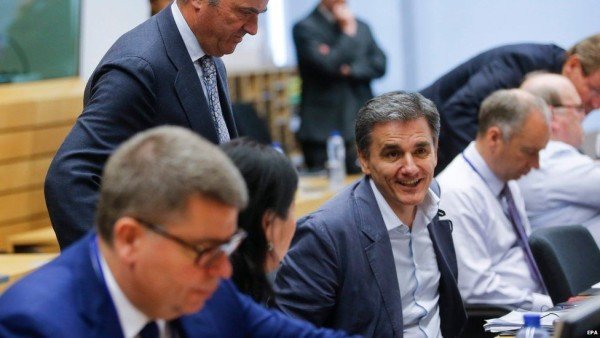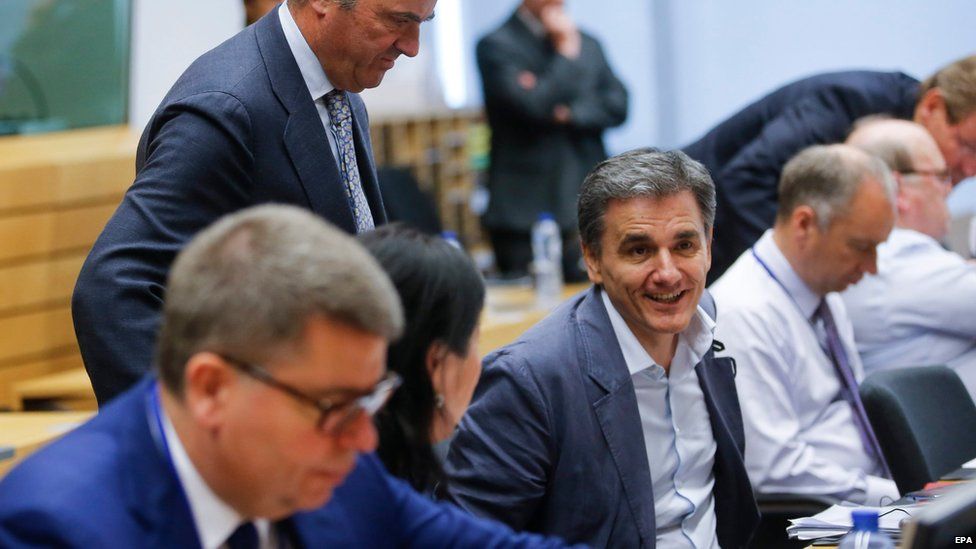Eurogroup is due to resume talks in Brussels on a bailout deal for Greece.
Nine hours of talks on July 11 ended without agreement and Eurogroup leader Jeroen Dijsselbloem described negotiations as “very difficult”.
Eurozone finance ministers have expressed skepticism Greece will implement the austerity measures it has proposed.
They have little time to produce a working plan ready for European leaders who meet in Brussels later on Sunday.
“We have had an in-depth discussion of the Greek proposals, the issue of credibility and trust was discussed and also of course financial issues involved, but we haven’t concluded our discussions,” Jeroen Dijsselbloem, who heads the Eurogroup of finance ministers, told reporters as the earlier round of talks broke up.
“It is still very difficult but work is in progress.”
Talks are due to resume at 09:00 GMT.
Greek lawmakers have backed the latest measures proposed by PM Alexis Tsipras, despite the fact that many of the ideas were rejected by the Greek people in July 5 referendum.
Greek Finance Minister Euclid Tsakalotos is attending the talks in Brussels, trying to convince his counterparts that his government can be trusted to push through their economic reform plan.
Before talks began on July 11, Jeroen Dijsselbloem said there were concerns not just about “the content of the proposals, but also on the even more difficult issue of trust”.
“How can we really expect this government to implement what it’s now promising? I think it’s going to be quite a difficult meeting,” he said.
German Finance Minister Wolfgang Schaeuble said Greece would have to do more than promise reforms if it wanted more money.
“We will definitely not be able to rely on promises,” he said.
Reports on July 11 suggested that German ministers were drawing up a plan that would allow Greece to exit the eurozone temporarily if this weekend’s talks fail – something Athens says it is not aware of.
There were also unconfirmed reports that Finland had refused to agree to the new bailout proposals, although on its own it is unlikely to stop any deal going ahead.
Greece is asking creditors for €53.5 billion ($59.47 billion) to cover its debts until 2018.
However, the amount of the new bailout could reach €74 billion as Greece seeks a restructuring of its massive debt, which it says is unsustainable.
Of the €74 billion, €58 billion could come from the EU’s bailout fund, the European Stability Mechanism, with €16 billion from the IMF, sources have said.
As talks drag on, Greece’s financial situation is close to collapse.
Banks have been closed for two weeks and a €60 ($66) daily limit on cash machine withdrawals, imposed on June 28, remains in force for Greek citizens.
